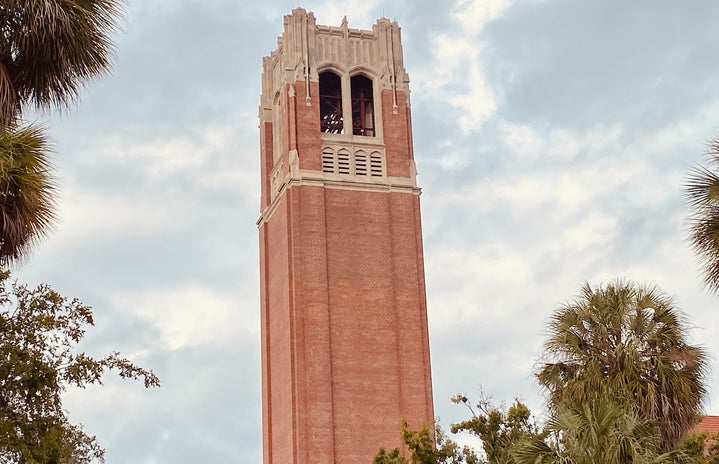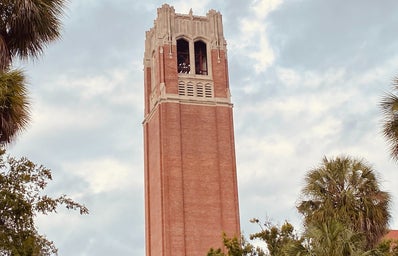Almost a month ago, the University of Florida eliminated its office of Diversity, Equity and Inclusion (DEI). Consequently, 13 full-time positions were terminated, and all DEI contracts with outside vendors were ended as mandated by a law passed a year prior by Governor Ron Desantis. DEI is an essential program in universities for both individuals and society as a whole. Its elimination at UF will have a far-reaching effect both in the present and into the future. As students, it is essential we understand its significance to our university experience and do everything we can to fight against future injustices which threaten our university, our state and our country.
This all began with Desantis’ culture war in Florida as he attempted to ban “wokeism” across the state. What exactly conservatives mean by “woke,” no one can say for sure, but they continue to use the word as an excuse to ban things that may make white people uncomfortable or strip them of their privilege in some way. One of these targets across the country has been DEI programs in universities with 28 states introducing bans to the programs. Conservative lawmakers believe these programs will give underrepresented students an unfair advantage. In reality, the purpose of DEI can be explained by this compilation of definitions provided by seven DEI experts: “Diversity is embracing the differences everyone brings to the table whether it’s someone’s race, age, ethnicity, religion, gender, sexual orientation, physical ability or other aspects of social identity. Equity is treating everyone fairly and providing equal opportunities. And inclusion is respecting everyone’s voice and creating a culture where people from all backgrounds feel encouraged to express their ideas and perspectives.” It can be argued that to most people, by definition, DEI seems not harmful, but an empowering initiative for everyone.
UF is a predominantly white institution (PWI) so some might assume banning DEI is not that big of a deal if less than half of students are minorities. Actually, UF does have quite a diverse student body with hispanic students making up 20.6% of the UF population, equating to approximately 11,000 students. This is no small number. These 11,000 students, in addition to the other 16,000 minority students at the school, deserve state funded resources and opportunities afforded to them through DEI. And these numbers are just considering race and ethnicity. If we look at the intersection between gender identity, sexual identity, disability and other disadvantaged identities, the number of students who would obviously benefit from DEI skyrockets. Allowing state funding for DEI would mean an increase in recruitment and admission of underrepresented populations and better support for these groups. By creating a more diverse environment in higher education spaces, universities can better model the real world and empower students from disadvantaged backgrounds to pursue a fruitful career.
DEI has undeniable benefits for individuals with underrepresented or disadvantaged identities. However, its perks are not only limited to these individuals. Learning about diversity, equity and inclusion is essential to replicating these practices in one’s workplace and in the wider world. Even a cis, straight white male can benefit from DEI, arguably this group could benefit the most. DEI creates opportunities and spaces to learn about the sociological roadblocks to achieving institutional diversity, the complex and often egregious history of equity and the methods which can be implemented in every field to boost inclusion. Additionally, through enhancing admission of diverse students, everyone benefits by having the opportunity to interact with people with different backgrounds than their own. These interactions on college campuses have been shown to enhance critical thinking and problem solving skills. DEI also provides benefits that reach beyond college campuses. One of the biggest reasons for fast turnover is unfair treatment. If students can learn now how to create equitable and inclusive spaces, they will have the skills required to become effective leaders in companies reliant upon diversity and inclusion. Clearly, DEI programs benefit everyone, from the people in class today to the top executives in 30 years.
It is again important to emphasize who DEI is for. It is for everybody: veterans with PTSD, students with dyslexia, graduate students from across the world. Through eliminating DEI, opportunities for veterans to get back on their feet after military service are eliminated, opportunities for more than one third of students with a learning disability are eliminated and opportunities for international graduate students who provide a $3 billion profit for higher education in the US are eliminated, among many others. DEI affects essentially every person on a college campus in a predominantly beneficial way. Its termination eliminates these benefits for tens of thousands of students. Many companies still require DEI programs to be implemented in their workplace. By taking away the programs in universities, students have less exposure to its principles and are therefore weaker applicants compared to students from other universities.
All around, banning DEI on college campuses is a bad idea. At UF specifically, there is still a lot of uncertainty about what the ban will mean for a variety of groups. Primarily, it is unclear if the Center for Inclusion and Multicultural Engagement, which received $340,000 in state funding in 2022-2023, will be at risk of elimination. This emphasizes the importance of multicultural student run organizations and other organizations which create spaces for students of various identities. Reliance upon these organizations will be essential for underrepresented students as they try to find a space at UF as well as students who wish to increase their cultural competency and understanding.
The elimination of DEI at the beginning of March 2024 at UF did not shock anyone; however, the shock waves of this decision’s implementation have yet to be felt by the university community. Here, the significance of DEI programs was highlighted in the hopes that it encourages students to fight back against these dangerous and harmful decisions. It is essential to use your voice, use your vote and encourage your peers to do the same if you wish to see change on UF’s campus.


